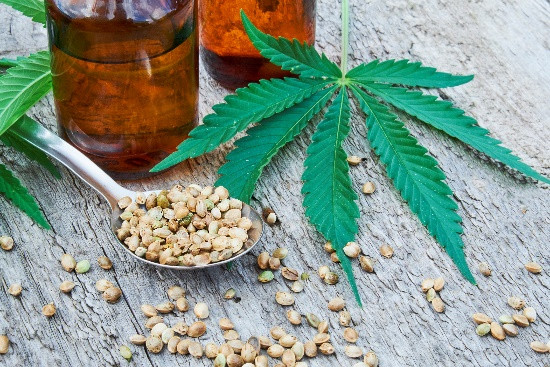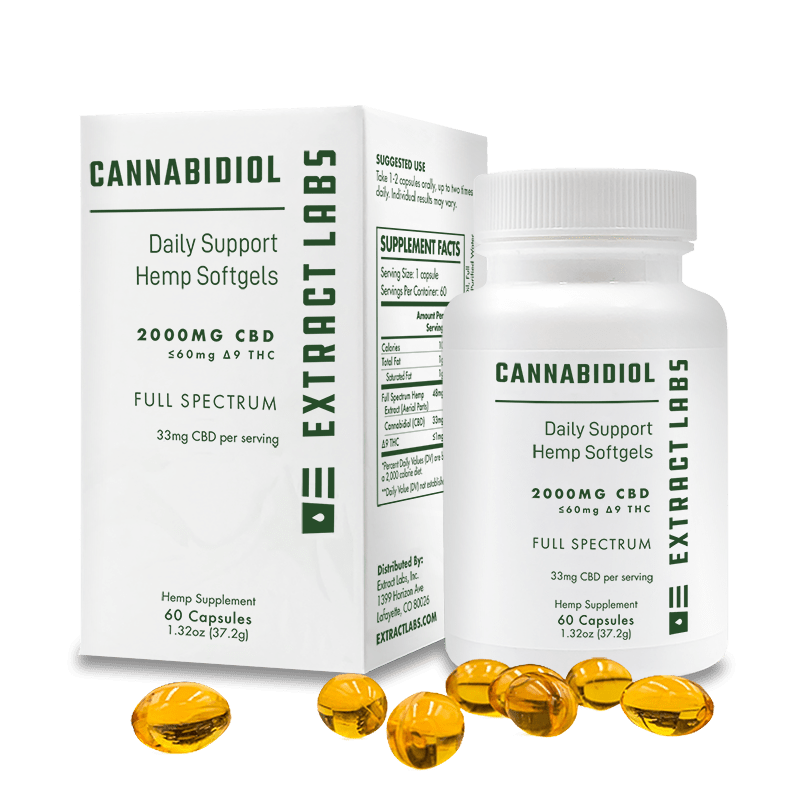
Hemp oil for depression has been linked to a variety of benefits, from reducing anxiety and enhancing sleep to supporting emotional well-being. It's also rich in essential nutrients, including omega-6 and omega-3 oils and all nine of the essential amino acids.
Hemp Oil and Depression
A growing number of people are turning to hemp oil as a way to fight depression and anxiety naturally without using drugs. It is a safe, natural, and effective alternative for pharmaceutical drugs that often have undesirable side effects.
Cannabidiol (CBD), one of the 104 chemical components found in cannabis plants is available in a variety of products, including edibles like gummies and oils.
Antidepressant Gummies
It has been proven to increase serotonin levels which can help with anxiety and depression. Hemp also reduces inflammation, pain, and stress.

This is an excellent alternative to the commonly used antidepressant medications, which tend to become less effective over time. Hemp acts in a completely different manner to antidepressants, so it may have the same effect as them but can be more effective in treating anxiety or depression.
Mood Lift
Hemp may regulate mood and have an appetite suppressant effect, which can reduce food cravings. Hemp is rich in both omega-6 and Omega-3 fatty acids, which are two types of unsaturated oils. It also contains all nine of the essential amino acids your body needs for protein production.
Nuleaf is a company that makes high-quality CBD oil, 750 mg. This oil is perfect for anyone just starting out. It is 100% pure and organic Colorado hemp.
How to take Hemp to Help Depression
It is best to consume hemp orally as it is easily absorbed into the bloodstream. It is not recommended that you smoke or vape hemp. These methods can increase your chances of having high blood pressure and lung problems.
Mixing CBD with other herbs and spices such as cinnamon, pepper, or sage can be a great idea. This will also improve the CBD effects.

How to Use Hemp Seed Oil for Depression
Hemp seed oils are a great source of essential fats and amino acids. They also contain the B vitamins which are critical for brain function and energy production. It also has many nutrients that promote general health, such as iron and potassium.
What are the most common symptoms of depression?
Different people may experience different symptoms, but the most common signs of depression include excessive sadness or loss interest in activities, trouble sleeping and changes in appetite.
It doesn't matter whether you suffer from seasonal depression, or a more severe condition, it can make life difficult. A visit to your doctor is recommended if you're having difficulty getting out of bed, or have trouble thinking straight.
FAQ
How much CBD do you need?
It all depends on the product you're purchasing.
CBD oils come with a range of strengths: 100mg to 1000mg per ounce.
Some CBD products come in specific doses such as 25mg 50mg and 75mg.
Charlotte's Web is an example of a company that makes CBD products with exact amounts of CBD and other cannabinoids.
Begin with a low dose if you're not sure whether CBD will work.
You can always go up later.
Can CBD be a part of the future?
Yes. However, it is not because of its medical benefits. Its ability to make people feel better without feeling high is what makes it so attractive.
People who want an alternative to prescription medications will love the fact that you don't feel any different after you use it.
And as we know from studies, there is a lot of evidence showing that cannabis helps with pain relief, anxiety, depression, insomnia, and many other conditions.
Cannabis also contains cannabinoids which interact with receptors in our brains. This interaction leads to feelings of relaxation.
So if you're interested in using cannabidiol (CBD) oil for health reasons, then it's important to understand what exactly it does and how it affects us.
What are the most common mistakes companies make when they try to enter the US market for cannabinoid products?
It is easy to make a mistake by not knowing the regulations surrounding cannabis products. This could mean that you may have to change your product formulation.
Unskilled labeling is the second. You must know whether your product contains CBD, THC, or both.
Finally, you must know how to package your product correctly. You must make sure that your product contains THC.
If your product is not containing THC, then it's important to follow all packaging regulations. There are many states that cannabidiol or CBD is legal.
You should also keep track of recalls that may have occurred with your products. It is important to inform customers as soon as possible if there is an issue with your product.
Statistics
- however, one study also found that these effects were virtually abolished when the original media (a nutrient broth agar) was replaced with one containing 5% blood (increasing the minimum concentration to ~160 μM CBD) [179]. (ncbi.nlm.nih.gov)
- CBD seems unlikely to directly influence sleep in healthy humans [115] (and maybe “sleep-promoting” in those with certain comorbid conditions) (ncbi.nlm.nih.gov)
- While the primary injury may not be treatable, interventions that attenuate secondary sequelae are likely to be of benefit [203].Only one study (ncbi.nlm.nih.gov)
- The use of these products is likely to become even more widespread if the World Health Organization's recommendation that CBD no longer is scheduled in the international drug control conventions is adopted by the United Nations member states [201]. (ncbi.nlm.nih.gov)
- As a substance that was federally illegal before the passage of the 2018 Farm Bill, hemp-derived cannabinoids with no more than 0.3% THC still face a regulatory grey area. (forbes.com)
External Links
How To
What are the major issues facing the CBD industry in general?
The market for CBD products continues to grow at an amazing rate. However, there are still many challenges facing businesses looking to enter this space. These include lack of consumer awareness and high costs of entry, limited capital access, and regulatory uncertainty.
Many consumers don't understand what CBD is and how it works. This means that consumers are unable make informed decisions about purchasing CBD products.
Many CBD companies depend heavily on word of mouth marketing. This is expensive because it requires paying for advertising and hiring staff to promote their brand.
Another issue facing new entrants into the CBD industry is the high cost of production. CBD products can be very costly because of the cost of the raw materials. CBD oil is made from hemp that has been grown in particular climates.
Growing enough hemp to make CBD oil takes around $1,000 per acre. Many small farmers can't afford to begin.
A lack of capital access is another problem that CBD market newcomers face. Banks are often discouraged from helping people start businesses because of the stigma that surrounds the industry.
Final, there are regulatory uncertainties surrounding the sale CBD products. There are currently no guidelines on how CBD products should marketed.
Some states have passed legislation restricting the sale of CBD products, but this has yet to become national policy.
Only Nevada, Maine, and Nevada have legalized recreational pot.
Massachusetts and Michigan have considered similar measures.
These changes could lead to increased competition between CBD manufacturers.
These factors lead to many entrepreneurs choosing to work from their home instead of starting a physical company.